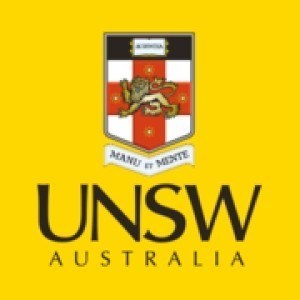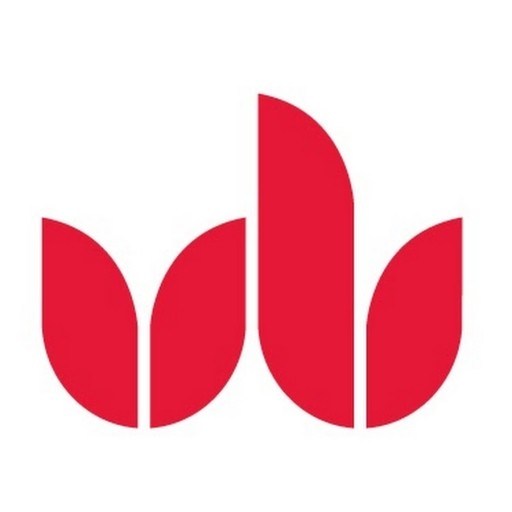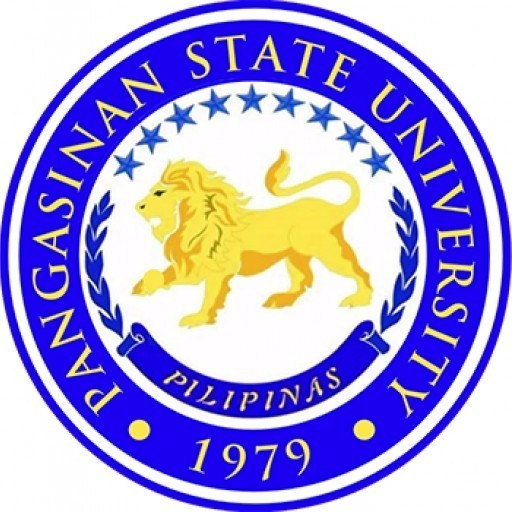Photos of university / #unsw
The Master of Public Health (MPH) at the University of New South Wales offers a comprehensive and interdisciplinary approach to understanding and addressing the complex health issues faced by populations today. Designed for aspiring public health professionals, this program provides students with a solid foundation in epidemiology, biostatistics, health policy, environmental health, and community health practice. Through a combination of core courses, electives, and practical experience, students will develop the skills necessary to analyze health challenges, design effective interventions, and evaluate health programs in diverse settings. The program emphasizes a global perspective, preparing graduates to work across different cultures and health systems to promote health equity and improve health outcomes worldwide. Students have access to state-of-the-art facilities, experienced faculty, and opportunities for research and collaboration with industry partners. The curriculum encourages critical thinking, data literacy, and leadership, equipping graduates to contribute meaningfully to health promotion, disease prevention, and health policy development. Whether aiming to work in government agencies, non-governmental organizations, research institutions, or private sectors, students of UNSW's MPH program will gain the knowledge and practical skills to advance their careers in public health. The program also offers flexible study options, including part-time study and online courses, to accommodate working professionals. As a graduate, individuals will become part of a vibrant academic community dedicated to improving public health on local, national, and global levels. With a focus on evidence-based practice and interdisciplinary collaboration, the UNSW MPH prepares students to lead initiatives that make a tangible difference in population health and health equity.
The program comprises the following components, for a total of 48 units of credit:
- Core courses - 18 units of credit
- Elective courses - 30 units of credit
Core Courses
- PHCM9012 Health Promotion & Social Pers (6 UOC)
- PHCM9041 Foundations (6 UOC)
- PHCM9498 Epidemiology and Statistics:PH (6 UOC)
Electives
The following electives enable students to focus on areas of interest and professional relevance. Electives may also be chosen from core courses offered in the health management or international health programs. In addition, students may enrol in electives offered by other schools and academic units within the University of New South Wales, as well as approved courses offered by other universities, in accordance with the UNSW policy on credit transfer. Students may undertake Independent Study to learn about a particular subject area of special interest where there is appropriate expertise in the School, but no formal course. Students choose 5 elective courses (30 UOC) from the list below:
- PHCM9010 Community Development (6 UOC)
- PHCM9050 Immunisation Policy & Practice (6 UOC)
- PHCM9082 Advanced HE & FM (6 UOC)
- PHCM9108 Program Design & Evaluation (6 UOC)
- PHCM9120 Qualitative Research Methods (6 UOC)
- PHCM9129 Prevent & Manag Chronic Dis (6 UOC)
- PHCM9132 Applied Research Methods: PH (6 UOC)
- PHCM9331 Ethics and Law in PH (6 UOC)
- PHCM9381 Policy Studies (6 UOC)
- PHCM9440 Economic Evaluation in HC (6 UOC)
- PHCM9443 Htl Econ & Fin for Dev. Count. (6 UOC)
- PHCM9471 Comparative H'lth Care Systems (6 UOC)
- PHCM9517 Advanced Biostatistics (6 UOC)
- PHCM9518 Advanced Epidemiology (6 UOC)
- PHCM9522 Politics, Surveillance, Health (6 UOC)
- PHCM9604 Tobacco, Alcohol and Illicit (6 UOC)
- PHCM9605 International Health (6 UOC)
- PHCM9606 Reprod, Matern & Child Health (6 UOC)
- PHCM9609 Rural and Remote Intnl Health (6 UOC)
- PHCM9612 Environmental Health (6 UOC)
- PHCM9615 Principles & Practice of PHC (6 UOC)
- PHCM9622 The Global HIV Epidemic (6 UOC)
- PHCM9626 Inequalities and Health (6 UOC)
- PHCM9628 Health Impact Assessment (6 UOC)
- PHCM9630 PH Perspectives of Ind Health (6 UOC)
- PHCM9632 Indigenous Health & Wellbeing (6 UOC)
- PHCM9662 Health Aspects of Crises (6 UOC)
- PHCM9731 Outbreak Investigation (6 UOC)
- PHCM9761 PH Aspects of Mental Health (6 UOC)
- PHCM9782 Infectious Diseases (6 UOC)
- PHCM9783 Com Disease Control in HE & D (6 UOC)
- PHCM9784 Tropical Disease Control (6 UOC)
- PHCM9785 Predictive modelling in PH (6 UOC)
- PHCM9786 Non-Communicable Disease (6 UOC)
- PHCM9787 Infection Prevention & Control (6 UOC)
- PHCM9788 Infect Diseases Intelligence (6 UOC)
- PHCM9789 Bioterrorism & Intelligence (6 UOC)
Electives are also available from Arizona State University as part of the PLuS Alliance
- YMED5000 Integrated Emergency Managemen (6 UOC)
- YMED5001 Homeland Security (6 UOC)
- YMED5002 Hazards Governance (6 UOC)
- YMED5003 Public Management (6 UOC)
- YMED5004 IT in Emergency Management (6 UOC)
- YMED5005 Community Resilience Recovery (6 UOC)
- YMED5006 Interoperability for Emergency (6 UOC)
- YMED5007 Critical Incident Stress Mangt (6 UOC)
- YMED5008 Applied Data Analysis in CJ (6 UOC)
- YMED5009 Program Analysis for Emergency (6 UOC)
- YMED5010 GIS and Analysis (6 UOC)
Note: PHCM9498 is a pre-requisite course for PHCM9517 and PHCM9518.
Students may also apply to the Program Director to be allowed to replace up to 12 UOC of course electives with a 6 UOC Research Project, 6 UOC Independent Study or 6 UOC Internship.
- PHCM9103 Independent Study (6uoc) (6 UOC)
- PHCM9143 Internship (6 UOC)
- PHCM9148 Project (6 uoc) (6 UOC)
Additional Course Requirement for International Students.
International Students who have not previously completed a degree in Australia and are enrolled in the full time program in Sydney (Kensington campus) are required to take the following additional course in their first semester.
- PHCM9100 Academic Practice (0 UOC)
This course is available for all students to assist them with academic literacy practice and includes critical reading, thinking and writing, oral communication and managing postgraduate study. The course is made available at no charge to students and does not contribute to the program requirements of the degree. Local students who have not studied recently are also welcome to enrol to assist them with the transition back to university and to assist them with their academic skills.
Streams (Areas of Specialisation)
The following streams are available in the Master of Public Health. These allow students to focus their studies on areas where the School has considerable expertise, and may incorporate project work. Students who demonstrate capacity through achieving a Credit average and propose an appropriate project topic in the area of specialisation may apply to undertake a 6 UOC Project (PHCM9148). The project may be in the form of a small-scale research study, a case study, a program evaluation or a report on field experience, and will be negotiated in advance with the relevant Stream Convenor.
- 9045 Master of Public Health in Public Security (New in 2016)
- 9045 Master of Public Health in Quantitative Research Methods
- 9045 Master of Public Health in Social Research
- 9045 Master of Public Health in Health Economic Evaluation
- 9045 Master of Public Health in Aboriginal Health and Wellbeing
- 9045 Master of Public Health in Infectious Diseases Control
- 9045 Master of Public Health in International Health
- 9045 Master of Public Health in Health Promotion
- 9045 Master of Public Health in Primary Health Care
- An undergraduate degree in a field relevant to public health or health management (see list below)* and two years full-time professional or volunteer experience. This may also include equivalent professional experience acquired as part of a degree of 4 or more years duration (e.g. MBBS, MD)
OR
- An undergraduate degree plus an honours or postgraduate degree in a field relevant to public health or health management (see list below)*
- IELTS Academic version only 6.5 overall (min. 6.0 in each subtest)
- TOEFL Internet-based Test (iBT) 90 overall (min.23 in writing, 22 in reading, listening and speaking)
- TOEFL Paper-based Test (PBT) 577 overall (min. 5.0 in TWE)
[*Examples include, but are not restricted to, medicine, nursing, allied health, health sciences, biomedical sciences, dentistry, social work, sociology, behavioural and social sciences, social work, psychology, marketing, human services, emergency services, environmental health, veterinary science, health administration, business, management, engineering, law, science, mathematics and statistics, economics, policy studies and development studies.]
Applications will be assessed in accordance with the UNSW Recognition of Prior Learning Policy and Procedure.
The Master of Public Health program at the University of New South Wales offers various financing options to support enrolled students throughout their studies. Prospective students are encouraged to explore a range of funding sources, including government loans, scholarships, bursaries, and financial aid schemes. The Australian government provides financial assistance through schemes such as Austudy and Youth Allowance for eligible Australian students, which can help cover tuition fees and living expenses during the course duration. International students, on the other hand, should consider their personal savings, sponsorships, or scholarships offered by UNSW or external organizations.
UNSW offers a selection of scholarships specifically aimed at public health students, which may include merit-based awards, equity scholarships, and research grants. Applicants are advised to review the eligibility criteria and application procedures for these scholarships promptly to maximize their chances of securing funding. Additionally, students may seek part-time work opportunities on or near campus, which can provide supplementary income while allowing flexibility for their study commitments. The university's career services and student support centers provide guidance on job searching and financial planning.
For students enrolled in research components of the program, there may be opportunities to access research grants or stipends, depending on the nature of their research project and funding availability. Some students also pursue external grants from health organizations or research foundations aligned with public health initiatives. It is recommended that students contact the UNSW Financial Aid Office and consult the university’s scholarship portal to obtain up-to-date information on available grants and funding programs.
International students should also consider the cost of health insurance, visa fees, and accommodation when budgeting for their studies. The university provides resources to help students plan financially and manage expenses effectively. Payment plans may be available for tuition fees, allowing students to spread payments over manageable installments rather than one lump sum.
In summary, financing studies at UNSW for the Master of Public Health involves a combination of government assistance, university scholarships, external grants, and personal or family support. Careful planning and early application for funding opportunities are essential to ensure a smooth academic journey. Students are encouraged to engage with university support services for personalized advice and assistance in securing financial aid.
The Master of Public Health (MPH) at the University of New South Wales (UNSW) is a comprehensive postgraduate program designed to equip students with the skills and knowledge necessary to improve population health outcomes. This program covers a broad spectrum of topics, including epidemiology, health promotion, health policy, biostatistics, environmental health, and health services management. It aims to prepare graduates for diverse roles in public health agencies, government departments, non-governmental organizations, research institutions, and the private sector. The curriculum combines theoretical foundations with practical applications, emphasizing evidence-based approaches, critical thinking, and problem-solving skills. Students have the opportunity to undertake specialized coursework or research projects tailored to their interests and career goals. The program is suitable for recent graduates from health, social sciences, or related disciplines, as well as experienced health professionals seeking to expand their expertise. UNSW's strong links with industry and government ensure that the curriculum remains relevant to current public health challenges and policy developments. The program typically offers flexible study options, including full-time and part-time modes, to accommodate working professionals. Students benefit from access to state-of-the-art facilities, a vibrant academic community, and numerous networking opportunities through seminars, conferences, and collaborations. Upon graduation, students are well-prepared to contribute effectively to public health initiatives, research, policy development, and health education. The UNSW MPH program's focus on multidisciplinary learning and real-world problems ensures graduates are capable of addressing complex health issues at local, national, and global levels.










